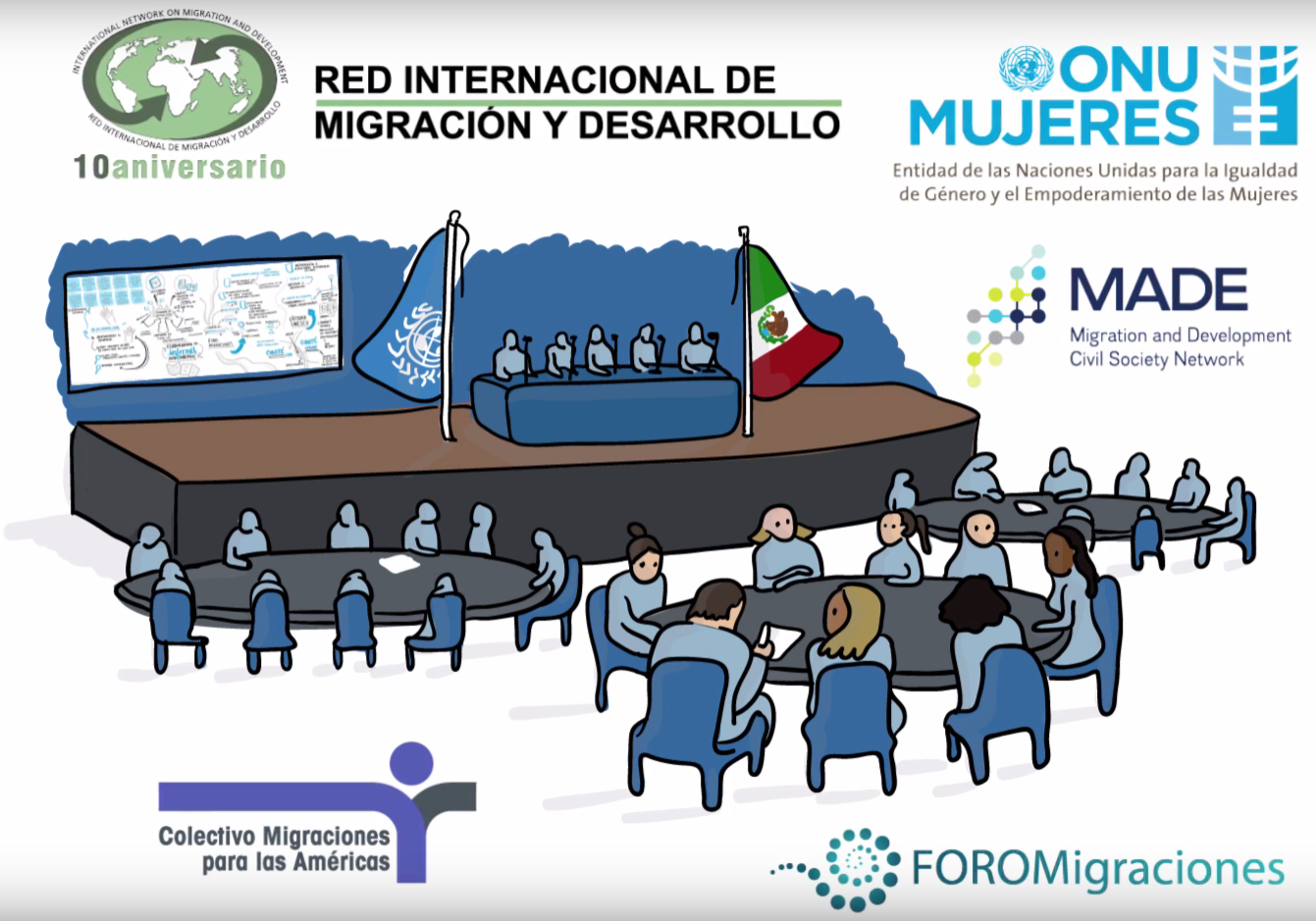
On June 30th 2016, MADE and its MADE Americas partner International Network on Migration and Development (INMD) hosted a webinar entitled "A new method to link the Global Forum on Migration and Development with binding processes - The case of women in migration in Mexico". Its aim was to show how non-state actors could work together around the world to link the non-binding with the binding and the global to the local to oblige states to better protect migrants’ rights, sharing the experience of networks and the UN offices in Mexico.
In order to expose a working method to achieve this, Rodolfo Córdova Alcaraz, Secretary of the INMD, presented key messages of the regional report “Avoiding the “trap”: Linking the Global with the National, and the Non-Binding with the Binding”. This report reveals the importance of identifying the discussions that governments hold at global spaces such as the Global Forum on Migration and Development (GFMD), and those responsibilities adopted by states at the United Nations, in this case the Committee on the Protection of the Rights of All Migrant Workers and Members of their Families (CMW) and the Convention on the Elimination of all Forms of Discrimination Against Women (CEDAW), aiming to monitor the implementation of these agreements at the national level. The organization and participation of civil society organizations and networks is relevant for the advocacy of policies and processes at local spaces, linking international commitments and what governments are promoting in global spaces.
To complement this idea, Gretchen Kuhner, Director of the Institute for Women in Migration (IMUMI) shared her organization´s experience in national civil society advocacy spaces within the GFMD, in order to push the national advocacy agenda and to ensure government compliance with commitments made during the GFMD. For this, it has been important to work at different levels with regional and global civil society (e.g. Colectivo Migraciones para las Américas, COMPA; Women´s Global Migration Working Group, WGMWG), in order to advocate in concerns related to women in migration at the national and at the international level. In addition, advocacy through technical spaces such as the Migration Policy Council from the Ministry of the Interior, and the Citizen´s Council of the Migration Institute, has also been a useful strategy for this. Using international and regional instruments helps to push agendas into local frameworks. For example, civil society in Mexico has strategically advocated for women in migration through CMW and CEDAW, departing from the Recommendation 26 of the CEDAW, instruments that have backed up civil society´s advocacy work.
Finally, UN Women in Mexico has been an ally to push these strategies. Monica Corona, representative of UN Women Mexico exposed how international frameworks such as the Sustainable Development Goals (SDGs) and the General Recommendation No. 26 of CEDAW allow addressing the situation of women in migration, especially women migrant workers, which may be at risk of abuse and discrimination. Through the Forum for the monitoring of the observations and recommendations to Mexico by the CMW and the CEDAW, organized by UN Women and different civil society networks (COMPA, Foro Migraciones, MADE) it was possible to focus on the promotion of joint reports/recommendations while strengthening advocacy skills of civil society organizations.
Linking both Committees has been an area of opportunity with an innovative character for the implementation of both conventions. This has help to link migration and the situation of women throughout the migration process, and to depart from international instruments to advocate at a national level.
Find the recording of the webinar with all presentations and discussions on our You-Tube Channel!
Article by Claudia León (INMD)